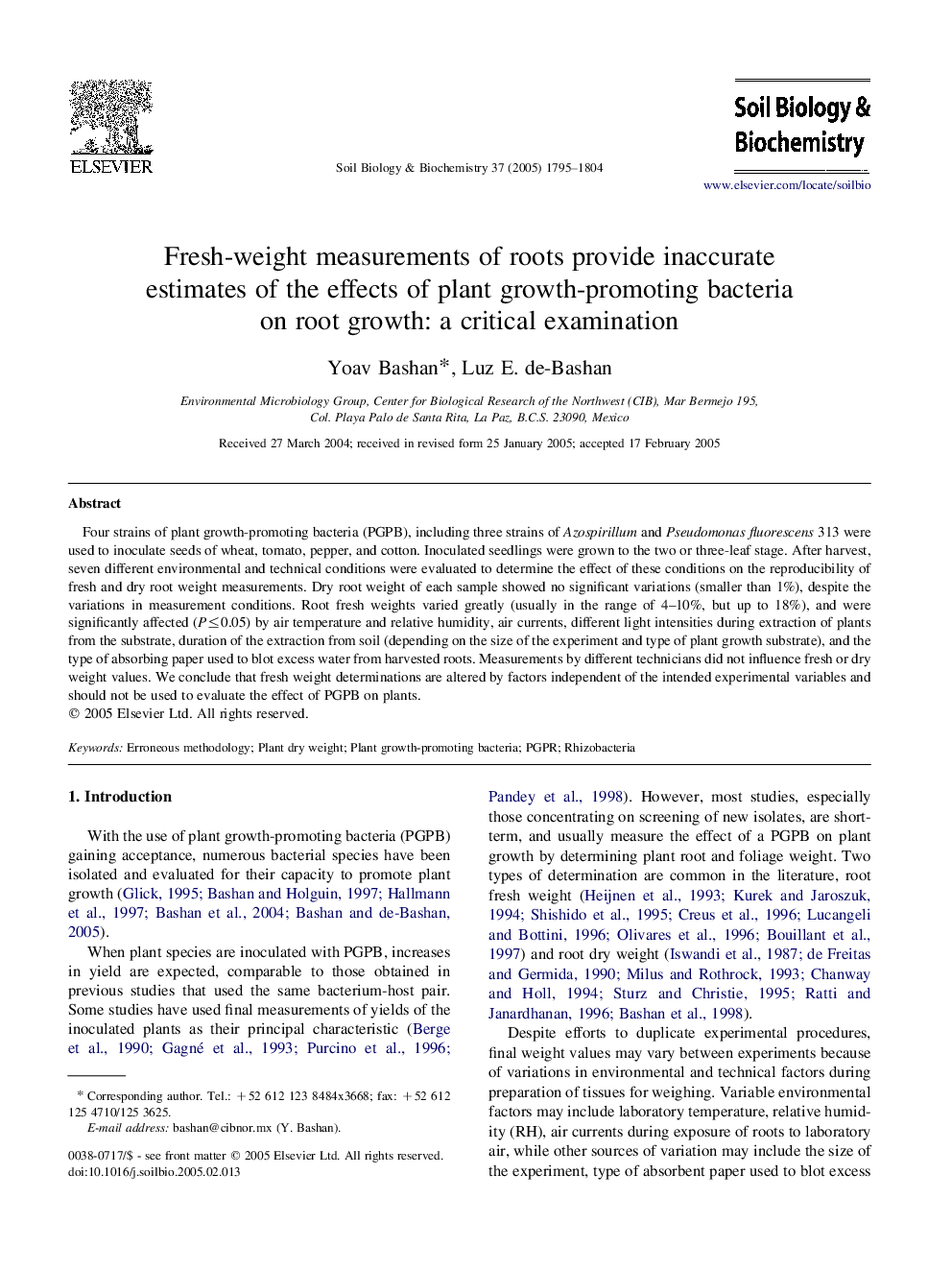| Article ID | Journal | Published Year | Pages | File Type |
|---|---|---|---|---|
| 10846255 | Soil Biology and Biochemistry | 2005 | 10 Pages |
Abstract
Four strains of plant growth-promoting bacteria (PGPB), including three strains of Azospirillum and Pseudomonas fluorescens 313 were used to inoculate seeds of wheat, tomato, pepper, and cotton. Inoculated seedlings were grown to the two or three-leaf stage. After harvest, seven different environmental and technical conditions were evaluated to determine the effect of these conditions on the reproducibility of fresh and dry root weight measurements. Dry root weight of each sample showed no significant variations (smaller than 1%), despite the variations in measurement conditions. Root fresh weights varied greatly (usually in the range of 4-10%, but up to 18%), and were significantly affected (Pâ¤0.05) by air temperature and relative humidity, air currents, different light intensities during extraction of plants from the substrate, duration of the extraction from soil (depending on the size of the experiment and type of plant growth substrate), and the type of absorbing paper used to blot excess water from harvested roots. Measurements by different technicians did not influence fresh or dry weight values. We conclude that fresh weight determinations are altered by factors independent of the intended experimental variables and should not be used to evaluate the effect of PGPB on plants.
Related Topics
Life Sciences
Agricultural and Biological Sciences
Soil Science
Authors
Yoav Bashan, Luz E. de-Bashan,
